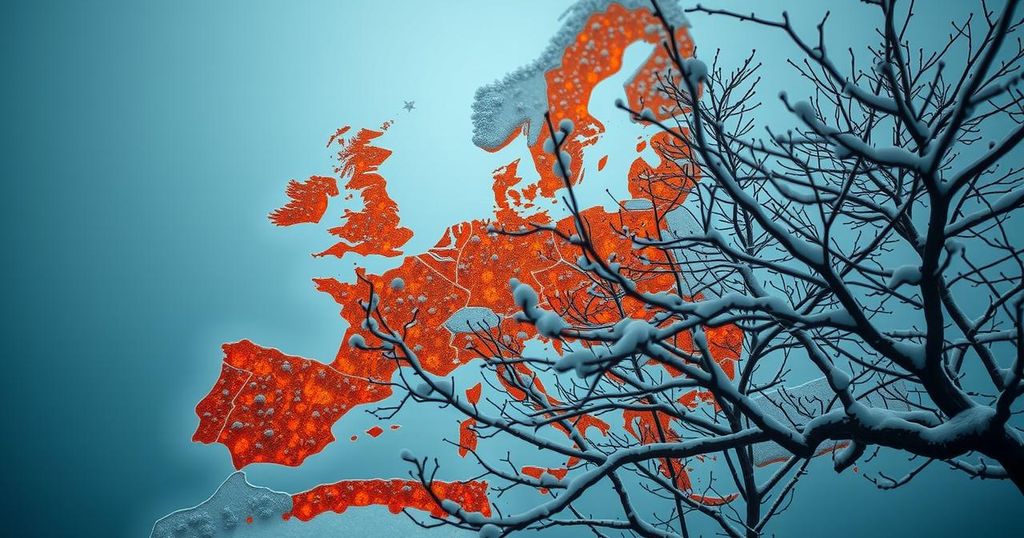Record November Heat in the Arctic: A Stark Indicator of Climate Change

November 2024 witnessed record high temperatures in the Arctic, particularly in Kirkenes, which reached 11.6°C, prompting concerns over climate change. Canceled winter tours have disappointed tourists, who recognize the broader effects of warming. Experts warn of dire consequences for local wildlife and human habitation, stressing that 2024 may become the first year to exceed the Paris Agreement’s temperature threshold.
Recent record-breaking temperatures have struck the North, particularly in Kirkenes, Arctic Norway, where a striking 11.6°C was observed on November 8, 2024, surpassing the previous high by 2.8 degrees. Tourists visiting for winter activities are grappling with canceled snow tours due to unexpected warmth. One disappointed tourist remarked that it is emblematic of a broader trend associated with climate change, which continues to have severe implications for northern ecosystems. Similar temperature spikes were reported across various locations in the European Arctic Circle, including Tromsø at 11.4°C, Alta at 14.7°C, and Hammerfest at 11.8°C. The Russian Arctic city of Murmansk also experienced an atypical rise to 10 degrees Celsius, a temperature not seen since 1975. Experts attribute this phenomenon directly to climate change, warning that while some may welcome milder winters, the larger global impacts are detrimental, including heightened sea levels and extreme weather patterns. Arild Sundfjord, a renowned physical oceanographer from the Norwegian Polar Institute, emphasized the long-term ramifications of these temperature changes. He cautioned that a complete loss of sea ice in regions like the northern Barents Sea would severely threaten native species, such as polar bears, and potentially displace human populations due to unbearable living conditions. The Norwegian Meteorological Institute additionally reported that 2024 is anticipated to be the first year with global temperatures exceeding the 1.5-degree threshold established by the Paris Agreement.
The article discusses the unprecedented warmth experienced in the Arctic region, particularly in November 2024. This phenomenon serves as a stark indicator of the ongoing impacts of climate change, with evidence suggesting a disturbing trend towards higher temperatures in areas historically known for their cold climates. The narrative further explores the implications of these weather changes on tourism, wildlife, and long-term environmental consequences, providing a comprehensive overview of how climate change alters both human experience and natural ecosystems.
In conclusion, the record temperatures across the Arctic highlight the pressing realities of climate change. As the region experiences unprecedented warmth, the consequences extend beyond immediate weather phenomena, impacting tourism, wildlife conservation, and overall environmental stability. Addressing climate change remains a critical and urgent challenge globally, necessitating collaborative efforts to mitigate its impacts and protect vulnerable ecosystems.
Original Source: www.thebarentsobserver.com







